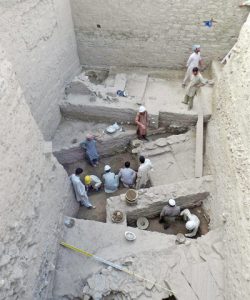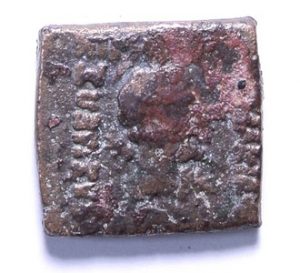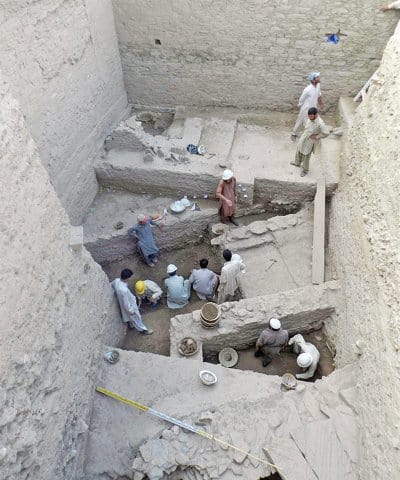
Pakistani and Italian archeologists discovered an Indo-Greek city during excavations in the Swat Valley, Khyber Pakhtunkhwua province of Pakistan.
In their ongoing excavations they found an entire city with weapons, coins as well as pottery forms imported from Greek Bactria (ancient Kingdom located in Central Asia) and from the Mediterranean area dating back to the 2nd Century BCE.
Dr Luca Maria Olivieri, an Italian archaeologist, while leading the mission in Swat Valley made this important announcement yesterday.
“Very little is known in the archeology of the sub-continent about the Indo- Greek culture. However, this time we discovered at Barikot ample layers associated not only to an Indo-Greek city, but also to a pre-Greek city, a Maurya settlement (the first Indian empire) in the 3rd century BCE,” said Luca Maria Olivieri, head of the Italian Archeological Mission.
 The team was formed by Italian and Pakistani archaeologists, including Elisa Iori of Bologna University, Cristiano Moscatelli of Naples University and Amanullah Afridi and Syed Niaz Ali Shah of the KP Directorate of Archaeology and Museums. Excavation trainings at Barikot are funded by the Pakistan-Italian Debt Swap Programme.
The team was formed by Italian and Pakistani archaeologists, including Elisa Iori of Bologna University, Cristiano Moscatelli of Naples University and Amanullah Afridi and Syed Niaz Ali Shah of the KP Directorate of Archaeology and Museums. Excavation trainings at Barikot are funded by the Pakistan-Italian Debt Swap Programme.
According to experts, the Barikot area is one of the most important sites of archeological research in the country, since it is the only Indo-Greek city excavated on a large scale and one of the few examples of Kushan settlement in South Asia.
The interaction between Greece and the region of Central Asia and South Asia began with the conquest of Alexander the Great in the 4th century BCE, with commercial and cultural exchange and also a Greek influence on artistic and philosophical schools of later periods.
The Parthenon Report: The Crime and The Criminal

